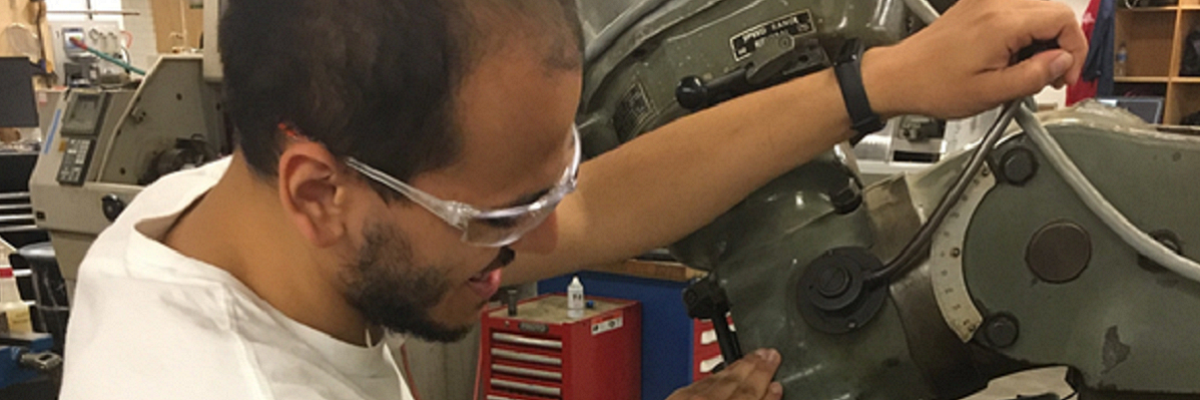
The Challenge: Advance Research-Stage Technologies to Commercial Viability
A key step in advancing a new technology beyond the research stage is to develop and demonstrate a prototype. Funding for prototyping is often difficult to obtain.
About Catalyst
The Catalyst Program provides grants of up to $75,000 to researchers and early-stage companies looking to demonstrate initial prototypes of their climate technologies. Catalyst is jointly administered by MassCEC and MassVentures with a goal of stimulating the commercialization of climate technologies developed in the Commonwealth. Specifically, the program is designed to demonstrate the feasibility of transforming new ideas from the research stage to commercially viable technologies to increase industry and investor interest. All awardees gain access to a vast network of partners, expert local market and policy insights, and mentoring from MassCEC and MassVentures, while all finalists receive complimentary pitch coaching and business mentoring.
About DICES (Diversity in Cleantech- Early Stage)
In parallel with Catalyst, MassCEC and MassVentures will award up to three additional grants of up to $75,000 each for projects led by applicants who are underrepresented in the Climatetech industry or faced economic barriers entering the environmental or entrepreneurial landscape.
Funding Schedule
The Catalyst/ DICES program offers funding twice per year. The current round closed March 14, 2025.
| Process Step | Timing |
|---|---|
Application period opens |
January 15, 2025 |
Optional Webinar |
January 28, 2025 12-1 pm |
Deadline to submit questions |
February 24, 2025 |
MassCEC posts responses to questions (see FAQs) |
February 27, 2025 |
Applications due |
March 14, 2025 at 11:59 pm |
Applicants notified of finalist status |
Mid-April 2025 |
Finalists' presentations |
Week of May 19, 2025 |
Finalists notified of award status |
Late June 2025 |
Who's Eligible
Catalyst and DICES are for technologies that are at Technology Readiness Level (TRL) 2-4, according to the TRL Calculator developed by the New York State Energy Research & Development Authority.
Eligible applicants include principal investigators at Massachusetts-based nonprofit research institutions or Massachusetts-based early-stage climatetech companies.
For DICES, applicants must also fill out section II on the application form. The response to the DICES question should demonstrate how the applicant is underrepresented in the climatetech industry or has experienced economic barriers entering the environmental or entrepreneurial landscape. More information about this process can be found in Section V of the Catalyst Request For Proposals (RFP).
For full Program details, please refer to the Catalyst RFP.
Apply
Application Process
For full Program details, please refer to the Catalyst RFP.
Applications must be submitted via the MassVentures portal.
For any questions, please email companycatalyst@masscec.com.
Request for Proposals
Learn about DICES and Catalyst
MassCEC hosted a webinar about the Catalyst and DICES programs on January 28th, 2025. The webinar includes a brief overview of MassCEC and MassVentures' programs, followed by more detail about Catalyst and DICES program and other funding opportunities.
FAQs
Last updated
September 19, 2024
Additional Resources
The Massachusetts Founder Network aims give Massachusetts startup founders equitable access to resources that will help their companies grow.
Learn about Incubators and Accelerators in Massachusetts.
Recent Awardees
Since program inception, our Catalyst Program has awarded over $10.5 million to 185 awardees, who have gone on to raise more than $852 million in follow-on funding and submit 455 patent applications. One out of every four university awardees has created a new company.

Atacama Bio
Atacama is an MIT spinout developing plastic alternatives that can be made cost-effectively from diverse, local biomass. Their flagship offering called WPK is a paper-recyclable, consumer-friendly, zero-carbon packaging solution.

Feon Energy
Feon invents novel electrolyte molecules that unlock next-generation battery chemistries promising higher energy density, enhanced safety, lower costs, and seamless scalability.

Fourier LLC
Fourier is a thermal management solutions company that is bringing the extraordinary thermal conductivity of phononic ceramics to the aerospace, renewable energy and EV industries in a massively scalable way!

Kanda Industries
Kanda Industries designs and supplies sustainable performance solutions for original equipment manufacturers (OEMs). Harnessing proprietary natural fiber-based reinforcement technologies, Kanda Industries provides viable, green alternatives in a broad spectrum of high-performance applications. Focused on automotives and motorsports, it is reshaping the composite industry's approach to sustainability.

Haystack Ag
Haystack Ag takes a systems-first approach to reduce soil carbon testing costs for growers and markets while maintaining high-accuracy measurements.

Active Surfaces
Active Surfaces is commercializing light weight and flexible solar panels based on decades of MIT research to be used on more difficult to install building surfaces, like bumpy rooftops. Their innovative manufacturing approach drives down manufacturing costs, which is transformational for semiconductor and electronics manufacturing.

Benchmark Labs, Inc.
Benchmark Labs combines grid level weather data with site-based internet of things (IoT) sensors and uses their proprietary AI software to provide precise asset-located weather forecasting to optimize installation of renewable energy infrastructure projects such as offshore wind.

MacroCycle
MacroCycle revives end-of-life plastics. They take plastic waste in the form of bottles, food trays and polyester textiles, and produce high quality and energy efficient sustainable plastic. All with zero carbon emissions, through MacroCycle's net-zero and efficient low energy process.

River Otter Renewables
River Otter Renewables’ patented process transforms sewage waste into renewable crude oil in under an hour from whatever waste is around including plant waste, food waste, sewage waste, and some plastic waste. The renewable crude oil can be used for things such as sustainable fuels for airplanes (SAFs), while reducing the creation of sludge and destroying harmful forever chemicals (PFAS).
Additional Funding Opportunities
AmplifyMass
$300,000
Rolling
InnovateMass
$350,000
TBD - Mid-July, 2025
Clean Energy Internship Program for Employers
$4,320/intern for Fall or Spring session; $8,640/intern for Summer session